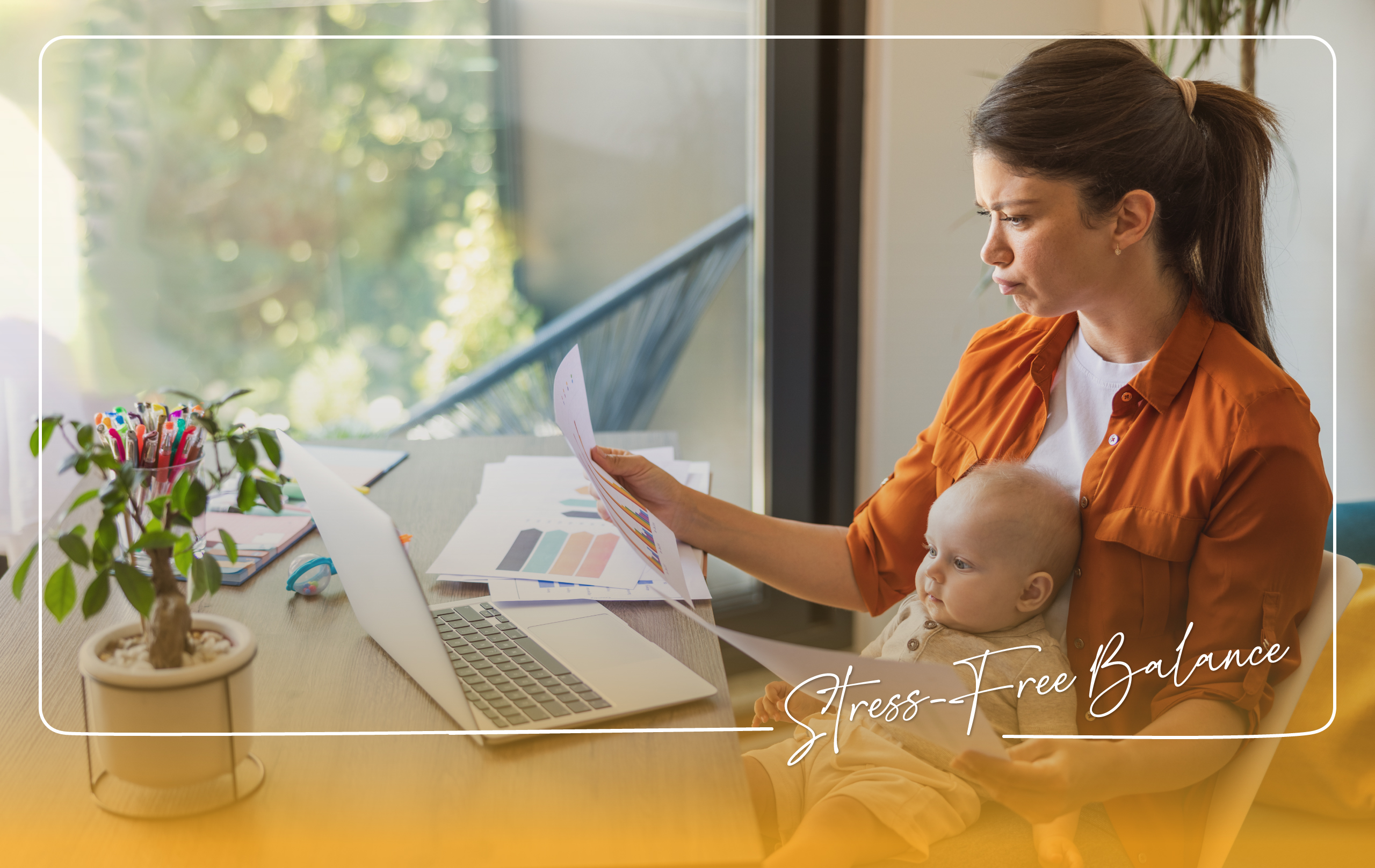
Balancing work and parenting can be a challenge in itself, but when your period comes along, it can feel even more overwhelming. When you're not feeling your best, have you ever struggled to juggle deadlines, meetings, school runs, and family responsibilities? You’re not alone!
How do periods affect your routine?
Not everyone goes through the same struggles during periods, but common symptoms during menstruation include:
Cramps and pain: Uterine contractions that help shed the uterus's lining can cause discomfort, cramping, or pain.
Fatigue: Hormonal changes and blood loss can leave you feeling drained of energy.
Mood swings: Fluctuating estrogen and progesterone levels can lead to irritability, sadness, or anxiety.
Bloating: Water retention during your period can cause bloating and discomfort.
Headaches or migraines: Some women experience hormonal headaches as part of premenstrual syndrome (PMS) or during their period.
How does your body respond to periods?
Understanding how your body responds to your cycle can help you better anticipate what you need to stay balanced during work and parenting responsibilities.
1. Plan Accordingly:
Plan by tracking your cycle to manage your work and parenting during periods better.
For Work —
Schedule lighter tasks during your periods and ask for help from your colleagues when it's needed.
For Parenting —
Prepare your meals ahead. Prepare freezer-friendly foods in advance, and assign age-appropriate tasks to your kids to help lighten the load, such as setting the table or tidying up toys. If you’re a co-parent with a partner, feel free to ask for their support and convey your feelings.
2. Practice Self-Care and Manage Symptoms
Taking care of yourself physically and emotionally during your period is vital to maintaining a stress-free balance between work and parenting. Self-care practices can help manage symptoms, boost energy, and improve your mood.
For Work —
Stay hydrated and move regularly. If you have cramps, a heating pad or warm compress can help ease discomfort. Walk around your office during breaks. Wear comfortable and loose-fitting clothes that adapt to your dress code.
For Parenting —
Rest when needed. It’s okay to take breaks. Encourage your kids in low-energy activities like reading or watching a movie for quality time and relaxation. Explain that you might not feel well due to your period, using it as an opportunity to normalize menstruation and educate your children, reducing any stigma or confusion.
3. Mind Your Mental Health
The emotional impact of your period is just as important to consider as the physical symptoms. Mood swings, irritability, or feelings of sadness can make it harder to manage responsibilities. Taking steps to care for your mental health can make a big difference.
For Work —
Set boundaries with your work. If possible Avoid taking on extra projects. Mindfulness practices, such as deep breathing, meditation, or journaling, can help you stay grounded and manage any emotional turbulence during your period.
It’s okay, some days, you may not be able to function at your full capacity. Acknowledge your limits and practice self-compassion.
For Parenting —
Be kind to yourself. It’s okay if everything isn’t perfect. Most importantly, you’re present for your kids, even if you’re not feeling 100%. A quiet moment with a cup of tea or five minutes of deep breathing can help reset your mind and emotions.
If you have friends or family members who can help with childcare, don’t hesitate to ask. Whether it’s for an afternoon or even just an hour, giving yourself some space to rest can benefit both you and your children.
4. Use Period Products That Suit Your Lifestyle
Choosing the right period products can greatly enhance your comfort and confidence during your period. Whether you're at work or managing a busy home, the right menstrual protection lets you focus on your day without worrying about leaks or discomfort.
Menstrual cups: These are eco-friendly and can be worn for up to 12 hours, making them ideal for busy days when you can’t frequently change products.
Tampons: Tampons are discreet and allow for physical activity. You can choose the absorbency level that fits your flow for maximum comfort.
Pads: For heavier days or nights, pads offer reliable protection. Some women find them more comfortable, especially when dealing with cramps or bloating.
Period underwear: This option provides all-day protection without the need for tampons or pads. It’s great for overnight use or for days when you want to minimize hassle.
Make sure the product you choose is comfortable for your body and fits your lifestyle, allowing you to focus on your responsibilities with peace of mind.
5. Practice Compassion and Flexibility
Lastly, it’s crucial to approach both work and parenting with a sense of flexibility and compassion.
For Work —
If you find yourself falling behind or struggling to keep up, don’t be afraid to ask for help or make adjustments. Speak to your manager if needed, and if you’re working from home, permit yourself to take it slow on heavy flow days.
For Parenting —
On days when you’re not feeling your best, it’s okay to simplify things at home. Whether that means ordering takeout for dinner, skipping non-essential activities, or letting the kids have extra screen time, being flexible will make it easier to manage.
Remember that periods are a natural part of life, and it’s okay to ask for help, set boundaries, and prioritize your health. Taking care of yourself during your period is not just about managing symptoms but also about honouring your body and its needs so you can be present for both your work and your family.


